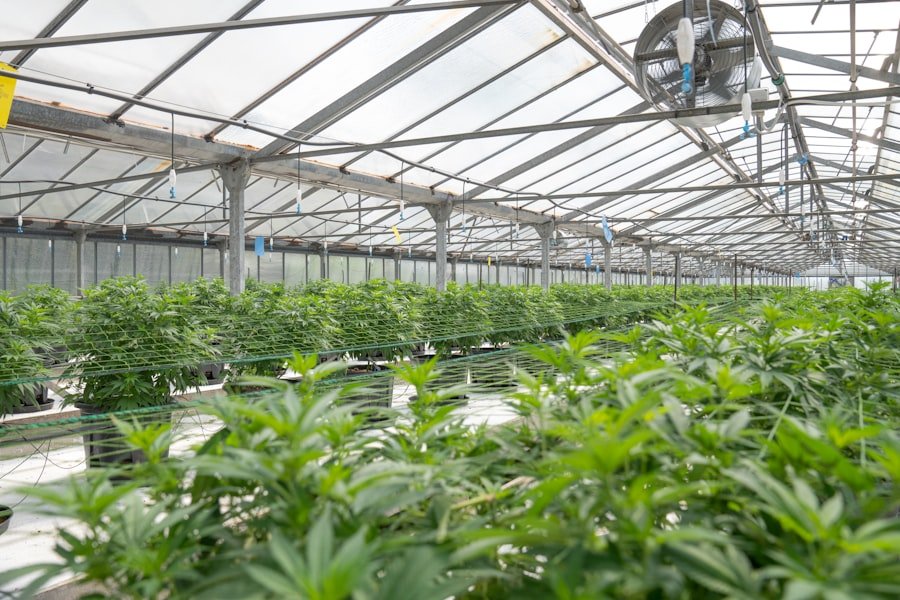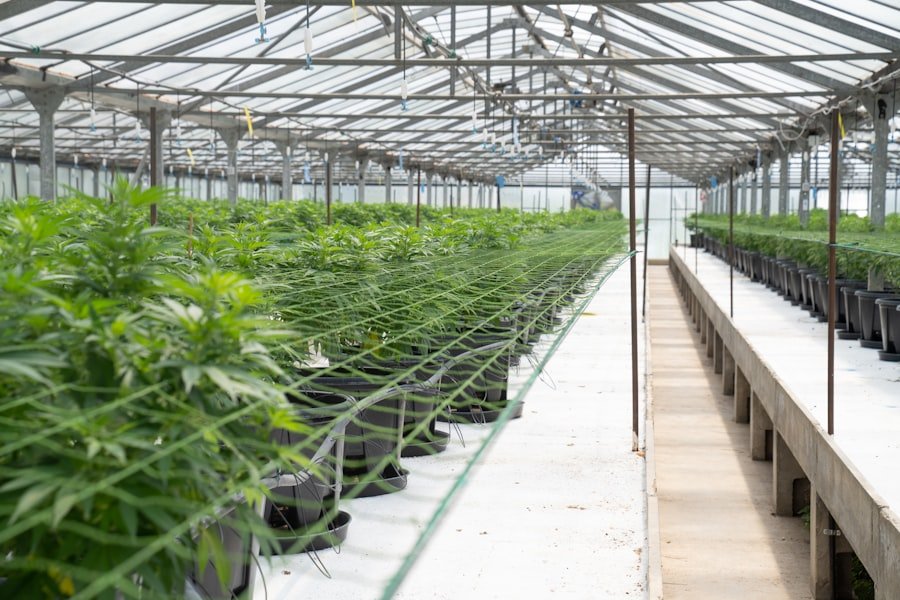The integration of artificial intelligence (AI) into the food industry marks a transformative era, reshaping how food is produced, processed, distributed, and consumed. As the global population continues to rise, the demand for food is escalating, necessitating innovative solutions to meet these challenges. AI technologies, including machine learning, data analytics, and robotics, are being harnessed to enhance efficiency, improve quality, and ensure safety across various sectors of the food supply chain.
This technological revolution is not merely about automation; it represents a paradigm shift in how stakeholders—from farmers to consumers—interact with food systems. The food industry is traditionally characterised by its complexity and diversity, encompassing agriculture, manufacturing, distribution, and retail. Each segment faces unique challenges, such as fluctuating market demands, environmental concerns, and the need for sustainable practices.
AI offers a suite of tools that can address these issues by providing insights derived from vast amounts of data. By leveraging AI, stakeholders can make informed decisions that enhance productivity while also considering ethical and environmental implications. This article delves into the multifaceted applications of AI within the food industry, exploring its impact on farming, production, distribution, service, and the broader ethical landscape.
Summary
- AI is revolutionising the food industry by improving efficiency, quality, and customer experience.
- In farming, AI is enhancing efficiency and yield through predictive analytics and precision agriculture techniques.
- AI is also being used in food production to ensure quality and safety through the use of sensors and data analysis.
- In food distribution, AI is optimising supply chain and delivery processes, reducing waste and improving efficiency.
- AI is personalising customer experience in food service through recommendation systems and predictive analytics, enhancing customer satisfaction.
AI in Farming: Improving Efficiency and Yield
In the realm of agriculture, AI is revolutionising traditional farming practices by introducing precision agriculture techniques that significantly enhance efficiency and yield. Farmers are increasingly adopting AI-driven tools that analyse data from various sources, including satellite imagery, soil sensors, and weather forecasts. These technologies enable farmers to monitor crop health in real-time, allowing for timely interventions that can prevent disease outbreaks or pest infestations.
For instance, companies like Climate Corporation utilise machine learning algorithms to predict crop performance based on historical data and current environmental conditions. This predictive capability empowers farmers to optimise their planting schedules and resource allocation. Moreover, AI is facilitating the development of autonomous farming equipment that can perform tasks such as planting, watering, and harvesting with minimal human intervention.
Drones equipped with AI technology can survey large fields quickly and efficiently, identifying areas that require attention. This not only saves time but also reduces labour costs and minimises the environmental impact associated with over-farming. The integration of AI in farming practices is proving to be a game-changer, enabling farmers to produce more food with fewer resources while also adapting to the challenges posed by climate change.
AI in Food Production: Enhancing Quality and Safety

The food production sector is another area where AI is making significant strides, particularly in enhancing quality control and ensuring food safety. Advanced machine learning algorithms are being employed to monitor production processes in real-time, identifying anomalies that could indicate potential quality issues. For example, companies like IBM have developed AI systems that analyse data from production lines to detect defects in packaging or inconsistencies in product quality.
By implementing these systems, manufacturers can address problems before they escalate, thereby reducing waste and ensuring that only high-quality products reach consumers. In addition to quality control, AI plays a crucial role in food safety by predicting potential contamination risks. Machine learning models can analyse historical data on foodborne illnesses alongside environmental factors to identify patterns that may indicate a higher risk of contamination.
This predictive capability allows food producers to implement preventive measures proactively. For instance, the use of AI in monitoring supply chain conditions—such as temperature and humidity—can help ensure that perishable goods are stored and transported under optimal conditions. By enhancing both quality and safety through AI technologies, the food production sector can build consumer trust while also adhering to stringent regulatory standards.
AI in Food Distribution: Optimising Supply Chain and Delivery
The distribution of food products is a complex process that involves multiple stakeholders and logistical challenges. AI is increasingly being utilised to optimise supply chains and improve delivery efficiency. By analysing vast datasets related to inventory levels, consumer demand patterns, and transportation logistics, AI systems can forecast demand more accurately.
This capability allows distributors to manage stock levels effectively, reducing waste due to spoilage while ensuring that products are available when consumers need them. Furthermore, AI-driven route optimisation algorithms are transforming the logistics of food delivery. Companies like Uber Eats and Deliveroo employ sophisticated algorithms that consider real-time traffic conditions and customer locations to determine the most efficient delivery routes.
This not only speeds up delivery times but also reduces fuel consumption and associated carbon emissions. Additionally, AI can facilitate better communication between suppliers and retailers by providing insights into market trends and consumer preferences. As a result, businesses can respond more swiftly to changing demands, ultimately leading to a more resilient food distribution network.
AI in Food Service: Personalising Customer Experience
In the food service sector, AI is enhancing customer experiences by personalising interactions and streamlining operations. Restaurants are increasingly leveraging AI-driven analytics to understand customer preferences better and tailor their offerings accordingly. For instance, platforms like OpenTable utilise machine learning algorithms to analyse reservation data and customer feedback, enabling restaurants to optimise their menus based on popular dishes or dietary trends.
This level of personalisation not only improves customer satisfaction but also drives repeat business. Moreover, chatbots powered by AI are becoming commonplace in the food service industry, providing customers with instant responses to inquiries about menu items or reservations. These virtual assistants can handle multiple queries simultaneously, freeing up staff to focus on more complex tasks that require human interaction.
Additionally, AI can assist in inventory management within restaurants by predicting usage patterns based on historical sales data. This ensures that popular ingredients are always in stock while minimising waste from over-ordering. The integration of AI into food service operations is creating a more efficient environment that prioritises customer satisfaction.
Ethical and Environmental Considerations of AI in the Food Industry

While the benefits of AI in the food industry are substantial, it is essential to consider the ethical and environmental implications of its widespread adoption. One significant concern revolves around data privacy and security. As businesses increasingly rely on data-driven insights to inform their decisions, they must ensure that consumer data is handled responsibly and transparently.
The collection of personal information for personalised marketing or service enhancements raises questions about consent and privacy rights. Additionally, the environmental impact of deploying AI technologies must be scrutinised. While precision agriculture can lead to reduced resource consumption and waste, the energy required to power advanced AI systems can be substantial.
The carbon footprint associated with data centres and cloud computing infrastructure must be considered when evaluating the overall sustainability of these technologies. Furthermore, there is a risk that reliance on AI could exacerbate existing inequalities within the food industry if smaller producers lack access to these advanced tools. Ensuring equitable access to AI technologies will be crucial for fostering a sustainable future for all stakeholders involved.
Challenges and Opportunities for AI in the Future of Food
The future of AI in the food industry presents both challenges and opportunities that stakeholders must navigate carefully. One significant challenge lies in the integration of AI systems into existing infrastructures. Many businesses may struggle with adopting new technologies due to financial constraints or a lack of technical expertise.
Training staff to work alongside AI tools is essential for maximising their potential benefits; however, this requires investment in education and resources. On the other hand, the opportunities presented by AI are vast. As technology continues to evolve, new applications will emerge that can further enhance efficiency across the food supply chain.
For instance, advancements in robotics may lead to fully automated farms capable of operating independently with minimal human oversight. Additionally, as consumer preferences shift towards sustainability and transparency, AI can play a pivotal role in tracking the provenance of food products throughout their lifecycle—providing consumers with the information they seek about their purchases.
The Potential Impact of AI on the Food Industry
The potential impact of artificial intelligence on the food industry is profound and far-reaching. From improving agricultural practices to enhancing food safety and personalising customer experiences, AI technologies are poised to reshape every aspect of how we produce and consume food. As stakeholders embrace these innovations, they must also remain vigilant about ethical considerations and environmental sustainability.
The journey towards an AI-driven food industry will undoubtedly be complex; however, with careful planning and collaboration among all parties involved—from farmers to consumers—there lies an opportunity to create a more efficient, safe, and sustainable food system for future generations. The ongoing evolution of technology will continue to challenge traditional practices while offering new avenues for growth and improvement within this vital sector of our economy.
In a recent article discussing the future of food and the role of AI in transforming the industry, it is evident that technological advancements are reshaping the way we produce and deliver food. This aligns with the findings of a related article on why businesses should seriously consider implementing Data Ops. Just as AI is revolutionising farming practices and food delivery systems, Data Ops can streamline data management processes and enhance decision-making in various industries, including the food sector. As we explore attractive business opportunities in regions like the UAE, it is crucial to leverage technologies like AI and Data Ops to stay ahead in the competitive market.
FAQs
What is AI?
AI stands for artificial intelligence, which refers to the simulation of human intelligence in machines that are programmed to think and learn like humans.
How is AI used in farming?
AI is used in farming for various purposes such as crop monitoring, predictive analytics for weather and soil conditions, autonomous vehicles for planting and harvesting, and precision agriculture to optimize resource usage.
How is AI used in food delivery?
AI is used in food delivery for route optimization, demand forecasting, customer service chatbots, and personalized recommendations for customers.
What are the benefits of using AI in the food industry?
The benefits of using AI in the food industry include increased efficiency in farming and food delivery, reduced waste, improved crop yields, and better customer experiences through personalized services.
What are the potential challenges of using AI in the food industry?
Challenges of using AI in the food industry include the initial cost of implementation, data privacy concerns, and the potential displacement of jobs due to automation.
